Kait, my fellow student, came into the cafeteria halfway through dinner and said, “Did you know there’s a horse farm across from the mall?”
“Wait,” I said, “a horse farm?”
“Yeah, people can go there to ride.”
The conversation was brief, but it lingered with me. Tangier, the land of traffic jams, narrow streets, and constant movement is home to a horse riding stable! I asked around, and sure enough, across the street from the Carrefour Supermarket sits the Royal Equestrian Club.
The next time I went to the supermarket, I made sure to peek through the row of trees so I could get a look inside the facility. I couldn’t see much, but I was able to see a couple of riding rings and the occasional horse and rider trotting by. One thing for sure about the “Royal Equestrian Club” was that it wasn’t what the name naturally invoked in me: images of a posh, upscale horse stable on a private road, sitting on a perfectly rounded hill, complete with polished stone floors and horses that seem never to encounter a speck of dirt in their lives.
The glimpse of the club stirred my curiosity even more, and I started to think of ways that I could get in and learn more about it. I wanted to find out what it takes to run an equestrian club in the middle of a city. I also wanted to find out why it was here in the first place.
I started horseback riding when I was ten, and continued to ride for eight years. Hunt Seat and Jumping are my primary disciplines to compete in, but I have learned the basics of how to ride many different disciplines in both the English and Western seat. I was never a rider who had a lot of money to spend, so I typically rode once a week for the first five years. I also never competed until high school—I didn’t have the money for the competition fees, the uniforms, and the lessons. During high school, I paid for lessons, purchased proper competition attire, and competed in shows by working as a barn hand during the spring and summer. I was never the best rider, but I loved what I did.
I did some research and discovered that the Royal Equestrian Club is a part of a larger network of 33 other competitive equestrian clubs across Morocco, and it is the only such club in Tangier. Riders are able to compete in competitions all over Morocco, with the primary disciplines being dressage, jumping, endurance, and tbourida. For the more unfamiliar and less obvious disciplines, dressage is the art of the horse and rider communicating to a point where it seems as if they are on a dancefloor moving with ease and flexibility. Tbourida, or “Powder Game,” is a traditional Moroccan event performed during holidays and consists of riders wearing light blue djellabas, riding on light gray horses with decorative harnesses, and carrying guns. The goal is to fire the guns at the same time when finishing the race.
I knew that I wanted to interview someone at the facility, perhaps the owner or manager. My roommate Dianne offered to go with me and to bring along her friend Mohamed to act as a translator. Later that day, we set out.
It was a long walk, but eventually, we made it to the stables. Just beyond a dirt parking lot, there was an unassuming entrance with a simple white sign. Once we got past the entrance, I looked around and saw multiple riding rings of different sizes, and a pile of jumps. We walked around for a couple of minutes, unsure of where to go. Every now and then, horses peaked their heads out of their stall doors to take a look at the new visitors.
I didn’t mind being lost in a place that felt so much like home. I eventually saw a sign for the administration and headed in that direction. On our way, we passed by a little girl, no older than five, wearing riding boots and her dark brown curls were cascading down from underneath a velvet black helmet. She stopped and watched us for a moment with her large brown eyes before running off toward the riding rings. I wondered if she was part of the small niche of privileged Moroccan children whose parents could easily afford to let her ride, or if she was more like me who had to practically beg her parents to let her indulge in this addicting hobby.
The administration was in a small building with a main office and a minuscule back room. Mohamed knocked on the opened door and an older gentleman with short, white hair and an equally short white beard emerged from the back room. He was wearing a navy blue plaid blazer with a simple, single-stoned pin attached to the lapel. He also donned a pair of thick-framed reading glasses that balanced on the tip of his nose.
We shook his hand, and he and Mohamed quickly exchanged a few words. The man introduced himself as Najib and went behind the desk and took a seat. Mohamed turned to me and told me that I could also sit so the interview could begin.
Najib Kadiri has been the director at the Royal Equestrian Club for 28 years, I learned. He started to work at the facility purely by coincidence, as he had originally set out to do community work. But the Equestrian Club soon fell into his lap; and as I was hearing this, my hunch about Tangier was confirmed. Tangier has a funny way of making things happen, and even things that happen for no rhyme or reason end up roping you in for life. Even though he never had had any interest in working with horses, he learned to love his job, and he developed a deep appreciation for the equestrian world.
Najib spoke with great clarity, poise, and authority. At the same time, he was also warm and inviting, and he made sure that us three random teenagers that waltzed into his office were as comfortable as possible. I decided to start off the interview by asking Najib about costs — what does it cost to keep a horse at his facility? What do lessons cost? What are the hourly rates for horseback riding?
Mohamed relayed the question and Najib soon had a look of concentration on his face. He pushed the brim of his glasses up his nose. He spoke a few words to himself and quickly scribbled down some numbers, before circling a number, a fraction of American prices.
I was almost wishing I could live in a place like Tangier so I could ride or even own a horse. “What is it like to run a horseback riding facility in the middle of a city?” I asked.
Najib paused for a moment, then answered. “It has its pros and cons. One pro is that it is very easily accessible for people who want to ride. A con though, is that it is very hard to take the horses out since the traffic is so congested.
I was about to ask him how the club ended up in the middle of supermarkets, houses, and busy roads when he beat me to it. “It wasn’t always like this,” he said, waving his arms around him until pointing in the direction of the supermarket. “When I first started, none of the stuff on the outside was here. Since then, it has all changed so much. Tangier just keeps growing and growing.” He also mentioned that he was thinking of moving the facility to the forest, so he would have room to expand his business and give the horses and riders more freedom and space.
Najib’s phone started ringing, and I realized he had to get back to work. As we rose from our seats, he told us we were welcome to come back and ride at any time, and we could come and ask him more questions. I shook his hand and left the administration building.
Dianne, Mohamed, and I decided to interact with some of the horses before we flung ourselves back into the chaos of Tangier traffic. The first horse we encountered was tall, muscular, and was black in color with a white blaze going down its face. The horse, despite its immense size and power, began licking Dianne’s hands like a puppy.
This horse’s personality reminded me of a couple of horses that I’ve worked with during the last summer that I was a barn hand back in the States. That summer, I primarily rode Jackzon, a 6-year-old bay-colored quarter horse owned by my boss and riding instructor. Jackzon was one of the kindest horses at the barn. He always wanted attention and he lived to please. He was also bomb proof, meaning that he wouldn’t spook even if a bomb went off.
The big horse kept licking Dianne’s hand. It was the perfect definition of a gentle giant. Even though I was unable to watch the horse be ridden, I could tell that it was willing to please.
As I petted the horse, I couldn’t help but coo at it in my native tongue. My mind turned to other people in Tangier who were just like me, willing to do whatever it takes to interact with and ride these magnificent creatures.
I also thought about Najib, the manager, who loved being a part of the equestrian world. Never in my wildest dreams did I imagine coming to Morocco and meeting a fellow member of a strange tribe. Najib, a Moroccan in his 60s, and me, a young woman from the United States, are horse-crazed people. He was able to develop this absurd passion over a career that began years before I was born, while I picked it up in my early teens. Both of us, however, are members of a fraternal bond of zealots.
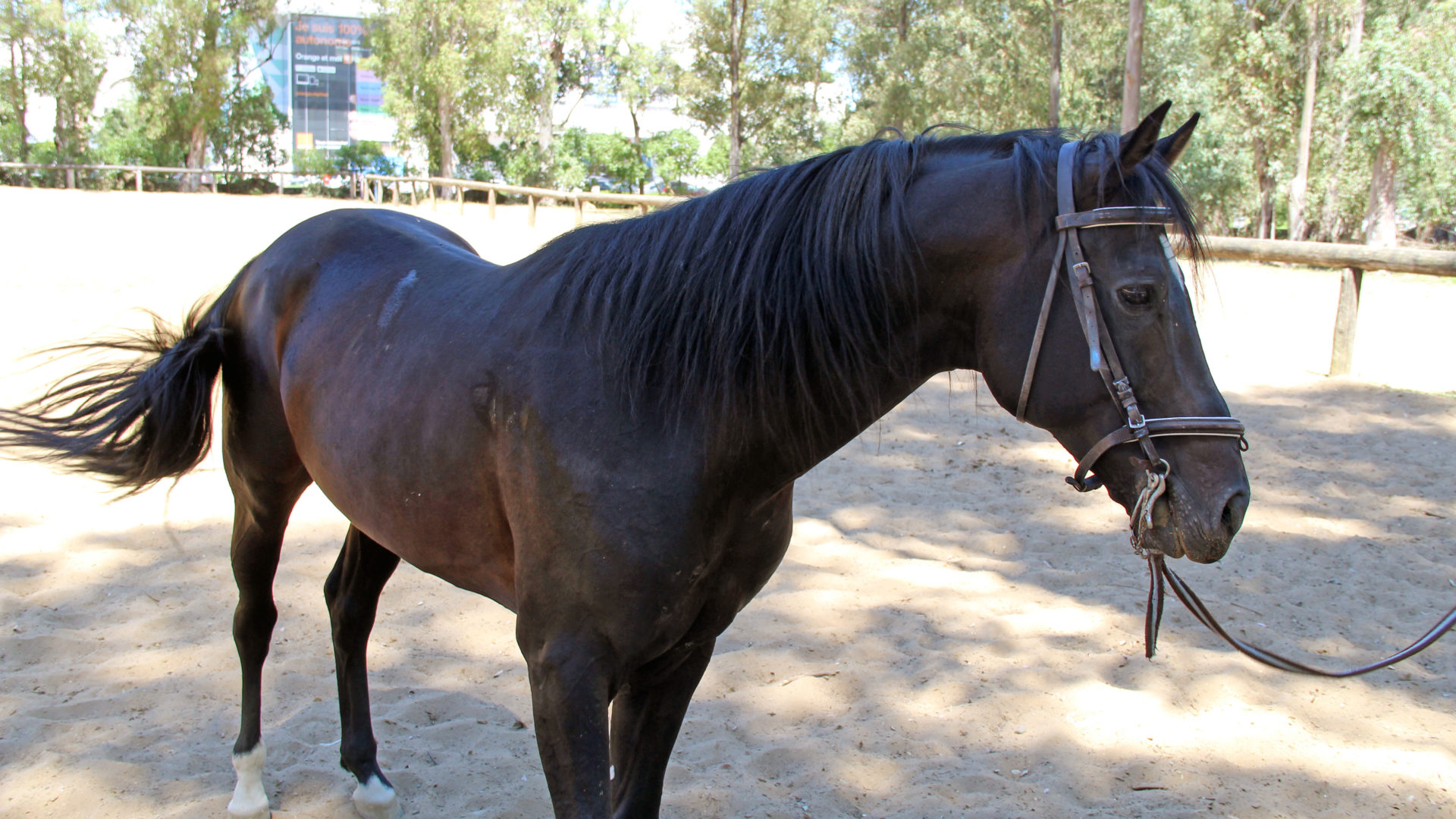
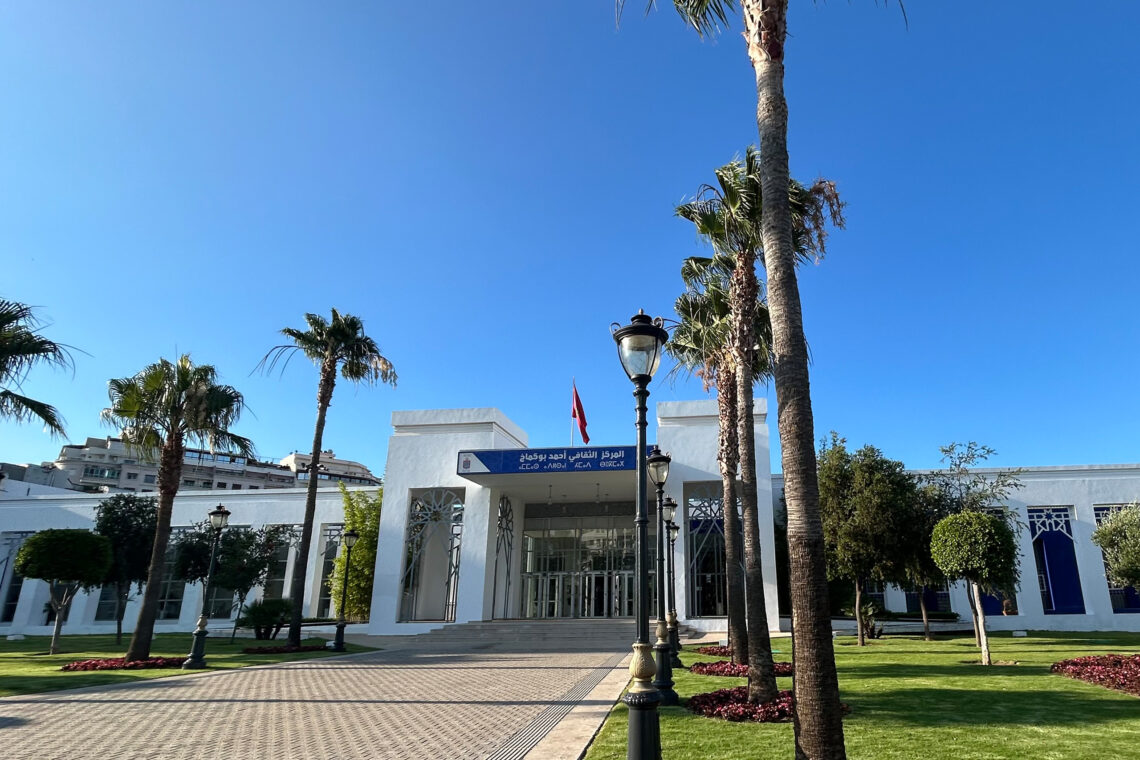
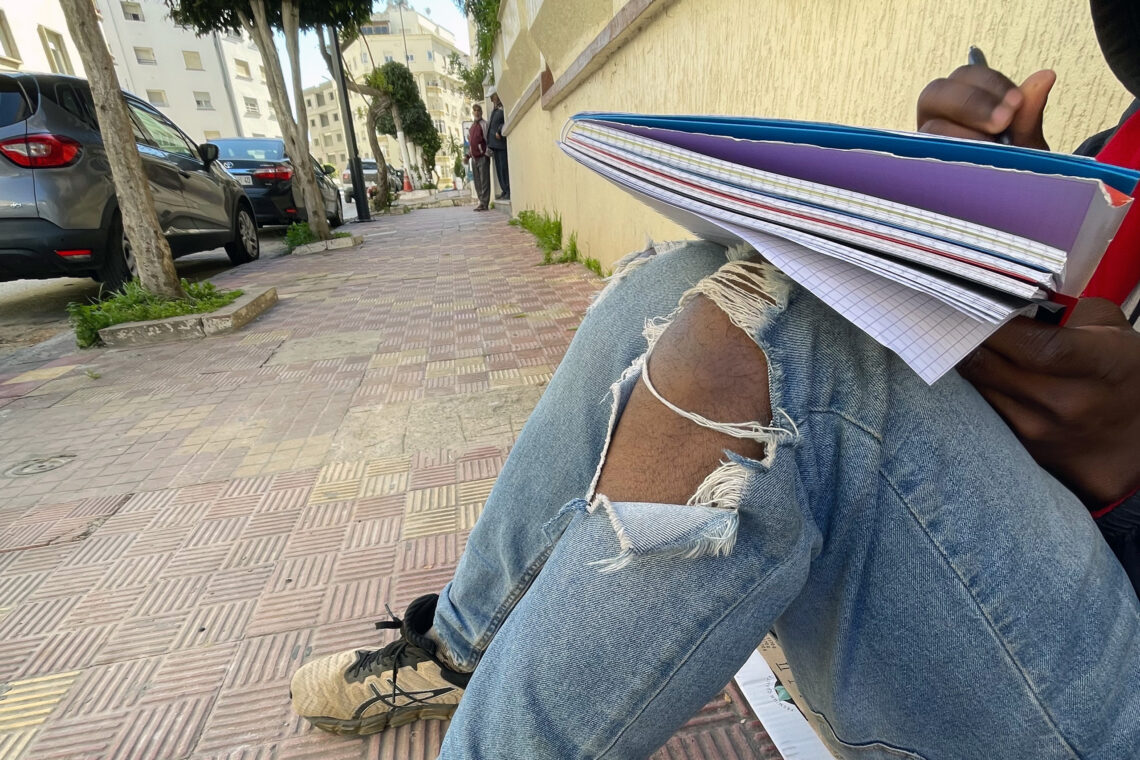
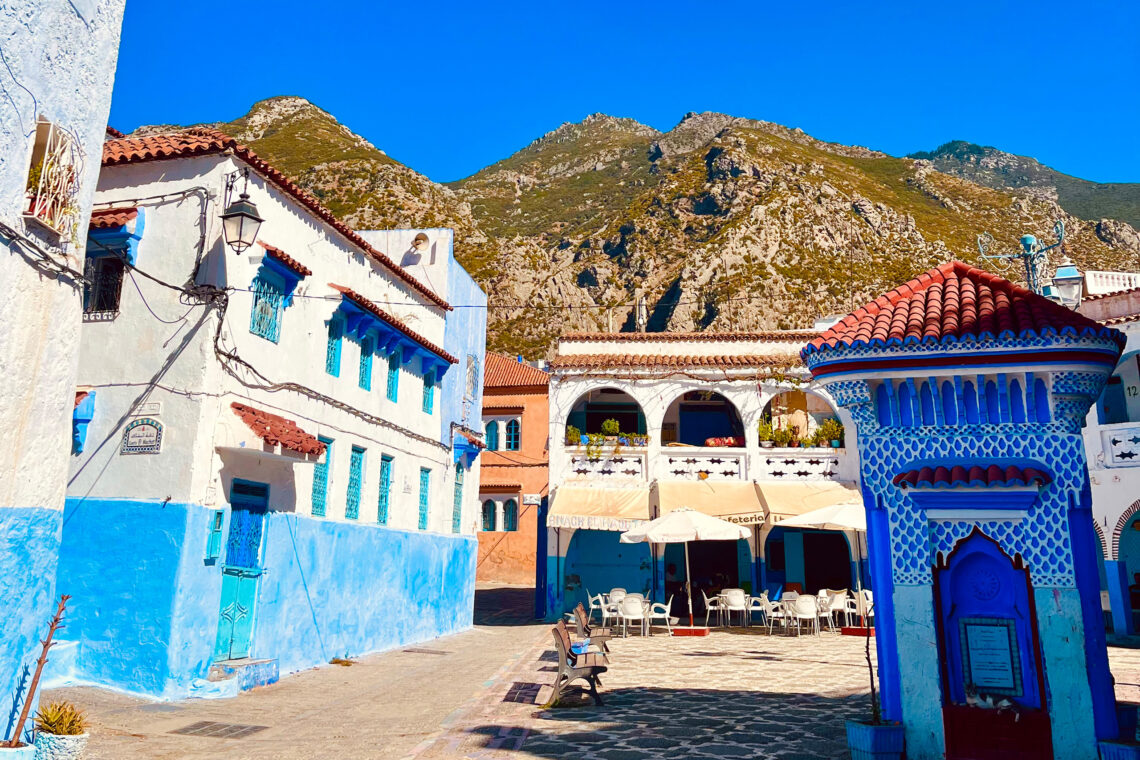
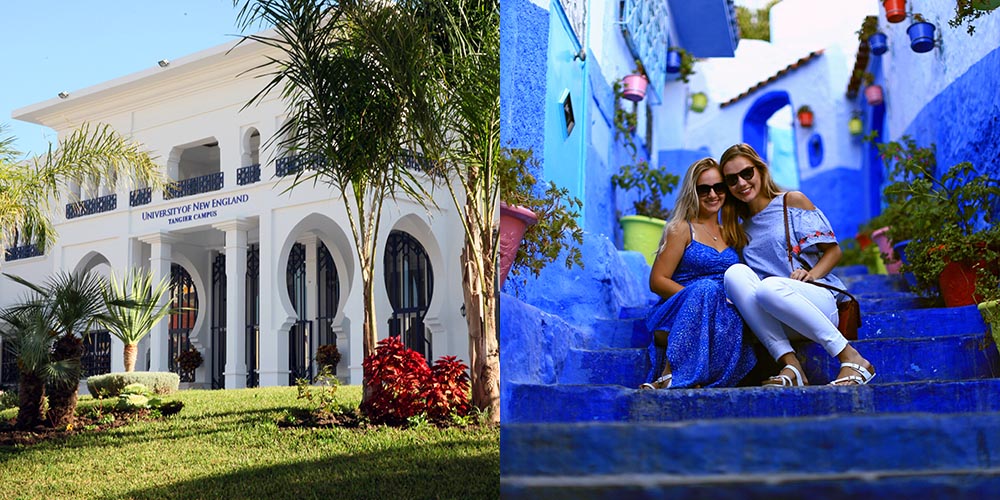

Comments are moderated by the editor and may not appear on this discussion until they have been reviewed and deemed appropriate for posting. All information collected is handled in a manner consistent with our privacy policy.